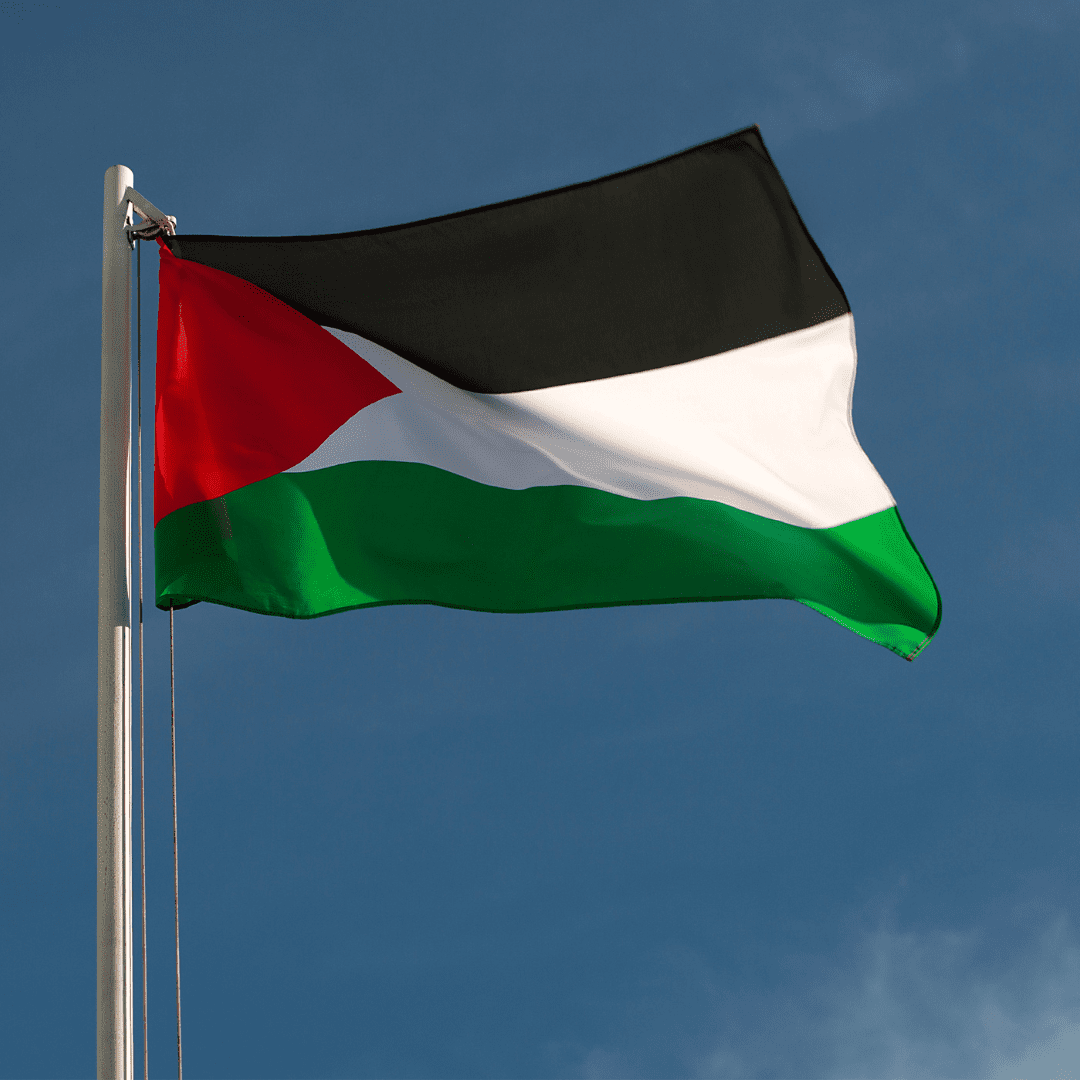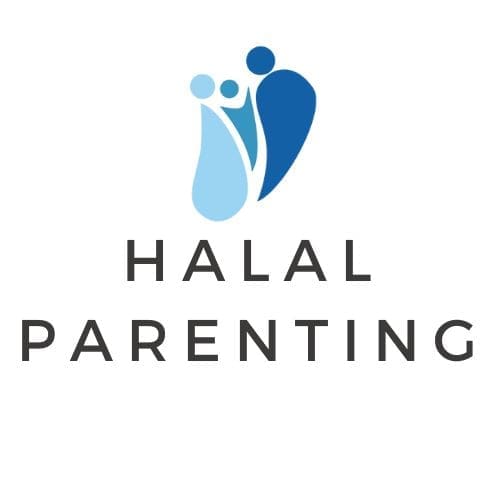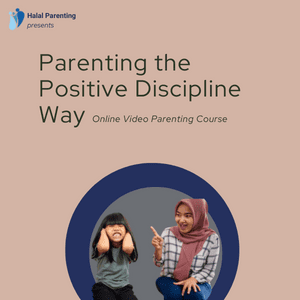How to Talk to Your Kids About Palestine

The ongoing occupation of Palestine is one such global issue that parents often find difficult to discuss with their children. However, as followers of the Sunnah of Prophet Muhammad ﷺ, it is our duty to engage our children in meaningful and age-appropriate conversations about this critical matter. In this article, we will provide guidance on how to talk to your kids about the oppression of the Palestinian people while emphasizing the teachings of our beloved Prophet ﷺ.
Before you approach this with your children, take a moment to register your own feelings. We all feel angry at the many grave injustices that our Palestinian brothers and sisters have to endure, but we have to put that anger aside in order to be able to explain the situation with our children calmly. Try to remember that your children are looking to you for cues on how to feel themselves – if you are angry, they will feel that way too.
Ultimately, we want our children to empathize and support our Palestinian family with a clear understanding of what is happening versus what we are being told is happening on the news. But there also needs to be tact – kids will need to know how to carry themselves in classrooms and on the playground when we are not there, and will need to know how to keep their emotions and feelings in check.
Start with Compassion and Empathy
Children develop various levels of empathy at different ages. The development of empathy for entire groups of people like the homeless population or oppressed people is more fully understood during late childhood and early adolescence.
Teaching children about the Palestinian occupation should begin with compassion and empathy. Explain to them that there are people suffering, including children just like them, who are living in challenging circumstances that are beyond their control. Encourage them to feel for the people affected by the conflict and the importance of helping others in need.
Prophet Muhammad ﷺ was known for his compassion and empathy. There are many stories from his life that exemplify these qualities, such as how he treated orphans and the less fortunate that you can and should share with your children.
Al-Nu’man ibn Bashir reported: The Messenger of Allah ﷺ said,
“The Muslims are like a single man. If the eye is afflicted, the whole body is afflicted. If the head is afflicted, the whole body is afflicted.”
[Source: Ṣaḥīḥ Muslim 2586]
Use Age-Appropriate Language
Consider the age and maturity of your child when discussing the tragedy in Palestine. Use simple and age-appropriate language to help them understand the basics of the situation. Younger children may not grasp the complexities of the conflict, so focus on the importance of peace and justice.
For older children, you can delve deeper into the historical and political aspects, always emphasizing the need for justice and compassion in line with the teachings of the Prophet. Open yourself up to their questions and try to answer them as best you can. Keep things simple, and avoid lengthy lectures.
Connect the Struggle in Palestine to Islamic Values
Highlight the Islamic values of justice, compassion, and peace when discussing the attacks on Palestine. Remind your children that Islam calls for the fair treatment of all people, regardless of their background. Share stories from the Quran and Hadith that illustrate these values, such as the story of the oppressed person whose prayer is readily accepted by Allah.
Islam was revealed to protect the natural rights of all human beings, their inalienable rights to life, property, and freedom. Violating these rights for any reason without a just cause is a major sin and it is a betrayal of Islam if Muslims claim such injustice is legislated by the Quran and Sunnah.
One reason we should be fearful of committing oppression is that Allah will always answer the supplication of an oppressed person.
Mu’adh ibn Jabal reported: The Messenger of Allah ﷺ said:
Be aware of the supplication of the oppresed, for there is no veil between it and Allah.
[Source: Sahih al-Bukhari 4347, grade: Muttafaqun Alayhi]
To create and strengthen the bond between your children and the Palestinian cause, especially if your heritage comes from elsewhere, teach and remind your children of this hadith:
An-Nu’man ibn Basheer reported: The Messenger of Allah ﷺ said:
The parable of the believers in their affection, mercy, and compassion for each other is that of a body. When any limb aches, the whole body reacts with sleeplessness and fever.
[Source: Ṣaḥīḥ al-Bukhārī 5665, Grade: Muttafaqun Alayhi]
Encourage Prayer and Supplication
Teach your children the power of prayer. Encourage them to make du’as (supplications) for the people in Palestine. Emphasize the importance of seeking Allah’s help and guidance in resolving conflicts and bringing about peace. Make it a family practice to pray for the oppressed.
للهُمَّ أَصْلِحْ أَحْوَالَ المُسْلِمِِينَ فِي فِلِسطِينَ، اللهُمَّ أَصْلِحْ أَحْوَالَ
المُسْلِمِِينَ فِي فِلِسطِينَ وفي كُلِّ مَكَانٍ، يَا ذَا الجَلالِ وَالإِكْرِامِ.
Allahumma aslih ahwaalal-muslimeena fi filisteen, Allahumma aslih ahwaalal-muslimeena fi filisteena wa fi kulli makaanin ya dhul-jalali wal-ikraam.
O Allah! Rectify the affairs of the Muslims in Palestine. O Allah! Rectify the affairs of the Muslims in Palestine and in every place, O Lord of Majesty and Bounty.
اللهُمَّ إِنَّهُمْ مَغْلُوبُونَ فَانْتَصِرْ لَهُمْ.
Allahumma innahum maghloobuna fantasir lahum.
O Allah! They are helpless, so help them.
رَبَّنَا أَفْرِغْ عَلَيْهِمْ صَبْراً وَثَبِّتْ أَقْدَامَهُمْ وَانْصُرْهُمْ عَلَى القَوْمِ
الكَافِرِينَ.
Rabbana afrigh ‘alayhim sabran wa thabbit aqdamahum wansurhum ‘alal-qawmil- kafireen.
Our Lord! Pour upon them patience, make them steadfast, and grant them victory over the Disbelivers.
اللهُمَّ مَكِّرْ لَهُمْ، وَاكْفِهِمْ بِمَا شِئْتَ إِنْ تَنْصُرْهُمْ فَلا غَالِبَ لَهُمْ، وَإِنْ
تَخْذُلْهُمْ فَمَنْ ذَا الَّذي يَنْصُرهُمْ مِنْ بَعْدِكَ.
Allahumma makkir lahum, wakfihim bimaa shi’t. In tansurhum falaa ghaliba lahum, wa in takhdhulhum fa man dhal-ladh’ yansurhum min ba’dika.
O Allah! Plot for them, and suffice them with what You please, if You support them then nobody can overpower them, and if You forsake them, then who will be able to support them after You?
لا إِلاَ إِلا اللهُ العَظيمُ الحَليم، لا إِلهَ إِلا اللهُ رَبَّ العَرْشِ العَظِيمِ، لا
إلهَ إِلا اللهُ رَبُّ السَّمَاوَتِ وَرَبُّ الأَرْضِ وَرَبُّ العَرْشِ الكَرِيمِ.
La ilaha illAllahul adhimul-haleem. La ilaha illAllahu, rabbul-arshil- adheem. La ilaha illAllahu rabbus-samawaati wa rabbul-ardi wa rabbul-arshil- kareem.
There is no God but Allah, the Mighty the Forebearing, there is no God but Allah, Lord of the Mighty Throne, There is no God but Allah, Lord of the Heavens and Lord of the Earth and Lord of the Noble Throne.
اللهُمَّ مََنْ أَرادَنَا وَبِلادَنَا وَالمُسْلِمِينَ بِسُوءٍ فَأَشْغِلْهُ فِي نَفْسِهِ، وَاجْعَلْ
كَيْدَهُ فِي نَحْرِهِ، وَاجْعَلْ تَدْبِيرَهُ تَدْمِيرَه.
Allahumma man aradana wa biladina bi su’in fash-ghilhu fi nafsih, waj’al kaydahu fi nahrih, waj’al tadbirahu tadmeerah.
O Allah! Whoever wants to harm us and our lands and the Muslims, then keep them busy with their own troubles, and return their plots to their own necks, and make their plans the cause of their own destruction.
Emphasize Education about Palestine’s History
Explain to your children that knowledge is a powerful tool in understanding and addressing conflicts. Encourage them to learn more about the situation by reading books, articles, and watching age-appropriate documentaries. Emphasize that we have a duty as Muslims to learn as much as we can about the true historic facts so that we can easily spot when we are being misinformed. We are obligated to think for ourselves so teaching kids how to think critically is a vital part of their education.
For older children (teens and young adults), share key figures and facts on the ethnic cleansing of Palestine. There are many sources of information on the internet, but be careful to vet the source. There are some great videos on the historic facts of Palestine by One Path Network, and Jewish Voice for Peace.
For young children, you can teach them the history of Palestine without going into gory details. Use stories to demonstrate the unfairness of the treatment of the Palestinian people, who welcomed the Jewish people into their homes after they had fled their homes from war. No other country wanted to take them in as refugees and help them, but the Palestinians did and were in turn robbed of their homes, land, and all their rights.
You can share videos that show the importance of Palestine to Muslims to help you lay the foundation on why this cause is so dear to our hearts.
Depending on the interest, age, and maturity of your child, you will know how much detail to go into, but keep things focused on the justice aspect. Even though we don’t live there, we have a duty to help our Muslim brothers and sisters and stand up for what is right. Using simple analogies like this can help imprint the lessons of Justice.
Promote Acts of Kindness and Charity
Inspire your children to take action by performing acts of kindness and charity. Organize family charity initiatives such as bake sales or sponsored activities and donate to organizations working to provide humanitarian aid in Palestine. This helps children understand the importance of helping those in need.
Model Positive Behavior
Children often learn by observing their parents’ behavior. Set a positive example by demonstrating your commitment to justice, compassion, and peace in your daily life. Engage in dialogues with your children, so they can see how you apply these principles in your own actions.
As hard as it is, as angry as we all are on behalf of our Palestinian brothers and sisters and children, we must set the right example for our children on how to carry ourselves. It’s crucial to turn all that negative emotion into positive energy – whether in the form of fundraising, making impassioned pleas and heartfelt dua’, protesting, or talking respectfully and civilly to others who aren’t aware of the reality of the situation. Our children are watching everything we do and are internalising it.
Talking to your kids about the war in Palestine can be a challenging but necessary conversation. By following the teachings of the Sunnah of Rasul’Allah ﷺ, you can help your children develop empathy, compassion, and a sense of responsibility towards those who are suffering. Remember to use age-appropriate language, connect to Islamic values, encourage prayer, promote education, and model positive behavior. Ultimately, our goal as Muslim parents is to raise children who not only understand the world’s challenges but also actively work to make it a better place, just as our beloved Prophet Muhammad ﷺ did during his lifetime.



Thank you for this insightful article on such a crucial and sensitive topic. Talking to children about global issues, especially those as complex and emotionally charged as the occupation of Palestine, is indeed a responsibility that many parents find challenging.